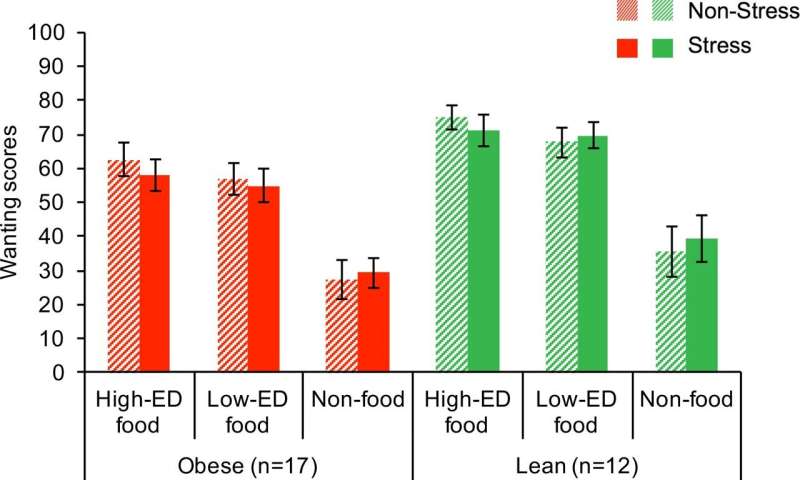
In a series of experiments using functional magnetic resonance imaging (fMRI) to measure brain activity across networks in the brain, Johns Hopkins Medicine researchers looked at how stress might increase appetite in obese and lean adults. The researchers found that stress impacts the brain’s responses to food, and that both lean and obese adults react to food cues in areas of the brain associated with reward and cognitive control.
The findings of the study were published Sept. 28 in PLOS ONE.
For the study, the researchers analyzed data from 29 adults (16 women and 13 men), 17 of whom had obesity and 12 of whom were lean. Participants completed two fMRI scans, one following a combined social and physiological stress test.
Participants were given a food word reactivity test during both scans. This test involved looking at how people’s brains reacted to food words, such as menu items on a chalkboard. To maximize the appetitive response in the brain, the researchers asked participants to imagine how each food looked, smelled and tasted, and how it would feel to eat it at that moment. They were also asked how much they wanted each food, and if they felt they should not eat that food, to see how they approached decision-making related to each food.
“The experiments showed that obese and lean adults differ somewhat in their brain responses, with obese adults showing less activation of cognitive control regions to food words, especially to high-calorie foods, like for example, grilled cheese,” says lead researcher Susan Carnell, Ph.D., associate professor of psychiatry and behavioral sciences at the Johns Hopkins University School of Medicine.
Source: Read Full Article
